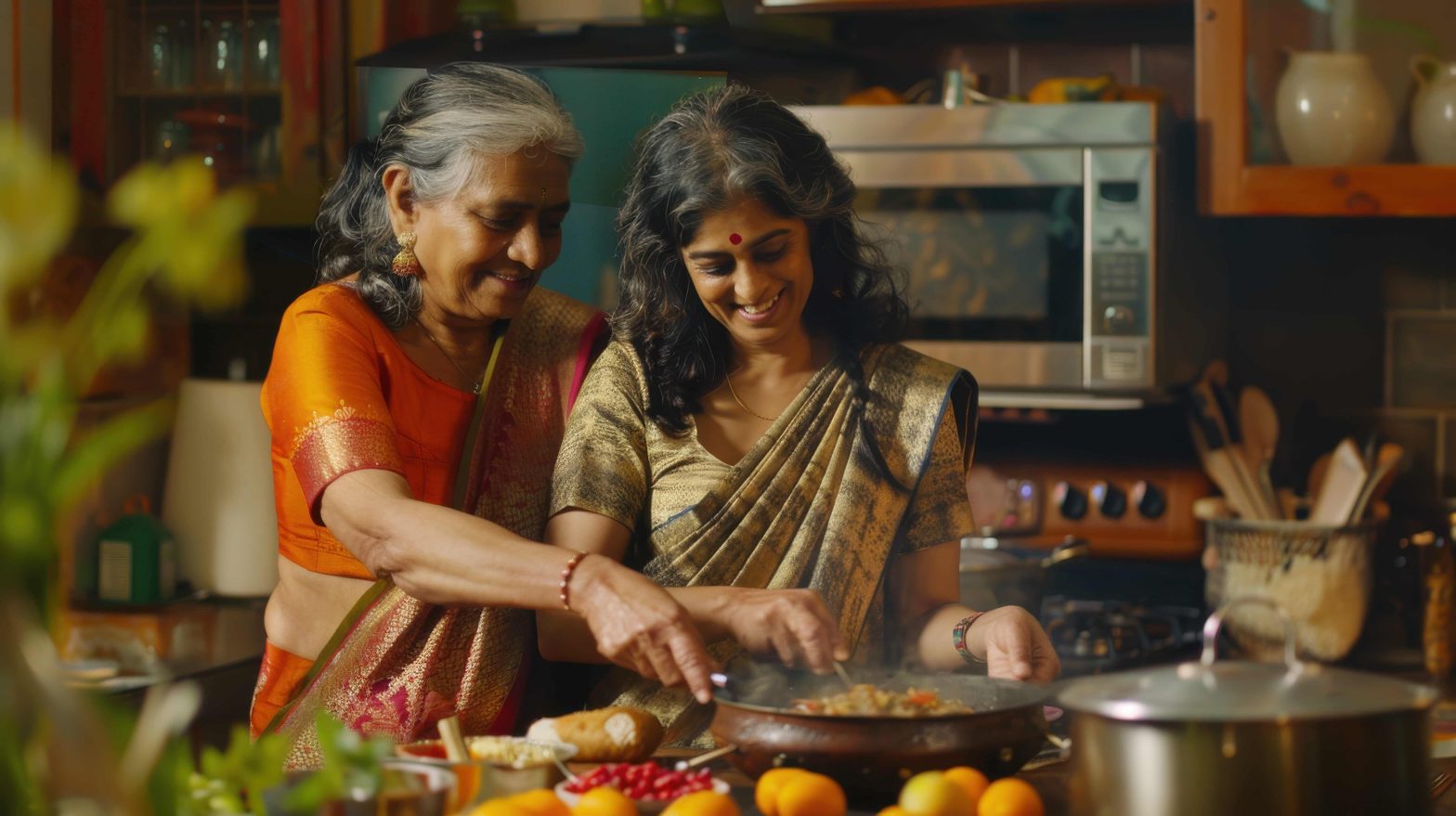As we age, we should be more careful and attentive to our bodies, and nutrition cannot be taken for granted. Nutrition for old people is super important. Think like this: imagine your body as a magnificent machine that has served you tirelessly for decades. As the years pass, this incredible engine undergoes natural changes, and just like any well-loved vehicle, it requires specific fuel to continue running optimally. This fuel is good nutrition for old age.
If you want to become a nutritionist, one of the most important topics to learn is nutrition in the elderly. Most nutrition and dietetics courses, such as those taught at Orane International Beauty and Wellness academies across India, cover this topic in some form.
Now, you may have the inclination to read more about topics such as nutrition for old people, the diet of elderly persons, related precautions, and tips. But where can you find reliable information about nutrition for the elderly and their diets? No worries!
This blog is about nutrition for older adults. It explains why good nutrition is important, how our bodies change as we age, the key nutrients we need, what happens if we don’t eat well, and simple tips for a healthy old-age diet. Let’s get started!
Why Nutrition in Old Age is So Critical
Nutrition in old age is more than just eating enough; it’s about investing in a healthy and happy later life. By giving your body the right nutrients, you extend your life and improve its quality. Good nutrition helps you stay strong, move easily, and remain independent. It boosts your immune system to protect against illnesses and keeps your mind sharp. Understanding how important nutrition is can help you make better food choices. Now, let’s explore how ageing affects your body and what nutrients you need to stay healthy.
The Ageing Body: A Nutritional Perspective
As we age, our bodies undergo several transformations that influence nutritional requirements:
- Metabolic Slowdown: The body burns calories at a reduced rate, making weight management more challenging. According to a blog on Healthline, research indicates that as people age, they become less active. This decreased activity can significantly slow down your metabolism, which is responsible for burning 10–30% of your daily calories.
- Sensory Alterations: Changes in taste and smell can affect food preferences and enjoyment. This can result in decreased appetite and difficulty finding meals enjoyable. Adjusting recipes and incorporating more flavourful ingredients can help make food more appealing and satisfying.
- Digestive Challenges: Conditions like constipation and acid reflux may become more common with age. Effectively managing these issues is essential for digestive health and comfort.
- Small Intestinal Bacterial Overgrowth: Ageing can increase the likelihood of excessive bacterial growth in the small intestine, known as small intestinal bacterial overgrowth. According to WebMD, ageing is a significant risk factor for SIBO (Small Intestinal Bacterial Overgrowth) because older adults are more prone to health issues that can cause low stomach acid or slow digestion. This condition can cause symptoms such as pain, bloating, and weight loss and may impair the absorption of vital nutrients like vitamin B12, iron, and calcium. Addressing these issues is crucial for maintaining overall health.
- Digestive Challenges: Conditions like constipation and acid reflux may become more prevalent. Furthermore, according to MSD Manuals, as people age, they are more likely to experience excessive bacterial growth in the small intestine, a condition called small intestinal bacterial overgrowth. This can lead to symptoms such as pain, bloating, and weight loss and may also impair the absorption of essential nutrients like vitamin B12, iron, and calcium.
- Brain Issues: Lack of nutrients in old age can also affect your brain, leading to memory issues and confusion. Moreover, an article on Healthline notes that several nutrient deficiencies, such as vitamin D, vitamin B-12, iron, and omega-3 fatty acids, could contribute to brain fog.
- Impact on Overall Health: Older adults may struggle to consume enough calories and essential nutrients, which can impact overall health. Ensuring a balanced diet with nutrient-dense foods is crucial to avoid deficiencies and support well-being. Understanding these changes is crucial for tailoring a diet that supports optimal health.
Essential Nutrients in Old Age for a Longer, Healthier Life
Like a high-performance engine needs the right fuel to work well, your ageing body needs specific nutrients to stay healthy. Protein is essential for your muscles, tissues, and enzymes, helping you stay strong and energetic. Calcium and vitamin D are crucial for keeping your bones healthy and reducing the risk of fractures. Fiber helps with digestion and controlling blood sugar, which is good for your gut health.
Vitamins and minerals, including antioxidants and healthy fats, support overall well-being, boost the immune system, and help the brain function better. By focusing on these key nutrients when creating a diet for an older person, you take big steps towards a healthier and happier life.
It can also make you more active and energetic while travelling as well . If you want to know about nutrition while travelling, read our in-depth blog.
Now, let’s look at how to create a diet that promotes nutrition in old age.
How to Craft a Nutritious Diet for Old Age
Creating a nutritious diet for elderly people is essential for maintaining health and vitality as we age. Here’s how to craft a balanced diet that supports well-being:
- Include a Variety of Foods: Eating a wide range of foods helps ensure you get all the necessary nutrients. When creating a diet for elderly people’s daily meals, add fruits, vegetables, whole grains, lean proteins, and healthy fats.
- Focus on Protein: Protein in old age is crucial for maintaining muscle mass and strength. Include lean meats (chicken, turkey), fish, eggs, beans, lentils, and nuts. These foods help prevent muscle loss and support overall health.
- Calcium and Vitamin D: Calcium and vitamin D are important for bone health in foods for older people. Add dairy products like milk and yoghurt and fortified plant-based milk alternatives. Leafy greens (such as spinach and kale) and fortified cereals are good sources. Vitamin D can be obtained from sunlight and supplements if needed.
- Fiber for Digestion: Fiber helps digestion and prevents constipation in old age. Include whole grains (brown rice, oatmeal), fruits (apples, berries), and vegetables (broccoli, carrots) in the food for senior citizens. These also help with blood sugar control and overall gut health.
- Healthy Fats: Healthy fats are good for heart and brain health, particularly in old age. Sources include fatty fish (salmon, mackerel), avocados, nuts, and olive oil. These fats support cognitive function and cardiovascular health.
- Stay Hydrated: Drinking enough water is vital for overall health in old age. Aim for at least 8 glasses of water a day, and include hydrating foods like fruits and vegetables to promote nutrition.
- Limit Salt, Sugar, and Processed Foods: Reducing salt and sugar intake can help manage blood pressure and prevent diabetes. When creating a diet for elderly people, try not to include heavily processed foods, which often contain unhealthy fats and added sugars.
- Monitor Portion Sizes: Eating appropriate portions helps manage weight and avoid overeating. Senior citizens should pay attention to hunger and fullness cues and avoid eating out of boredom.
By focusing on these dietary principles, older adults can maintain good health, energy levels, and quality of life.
Conclusion
Nutrition for older adults helps provide your body with the essential nutrients it needs. By doing so, you’re prolonging your life and enhancing its quality. Remember, you deserve to age gracefully and with vitality, and nutrition in old age is something you cannot compromise on. Orane International is here to support you on this journey with our comprehensive courses for those who want authentic knowledge about nutrition. Let’s nourish your body and soul together.















